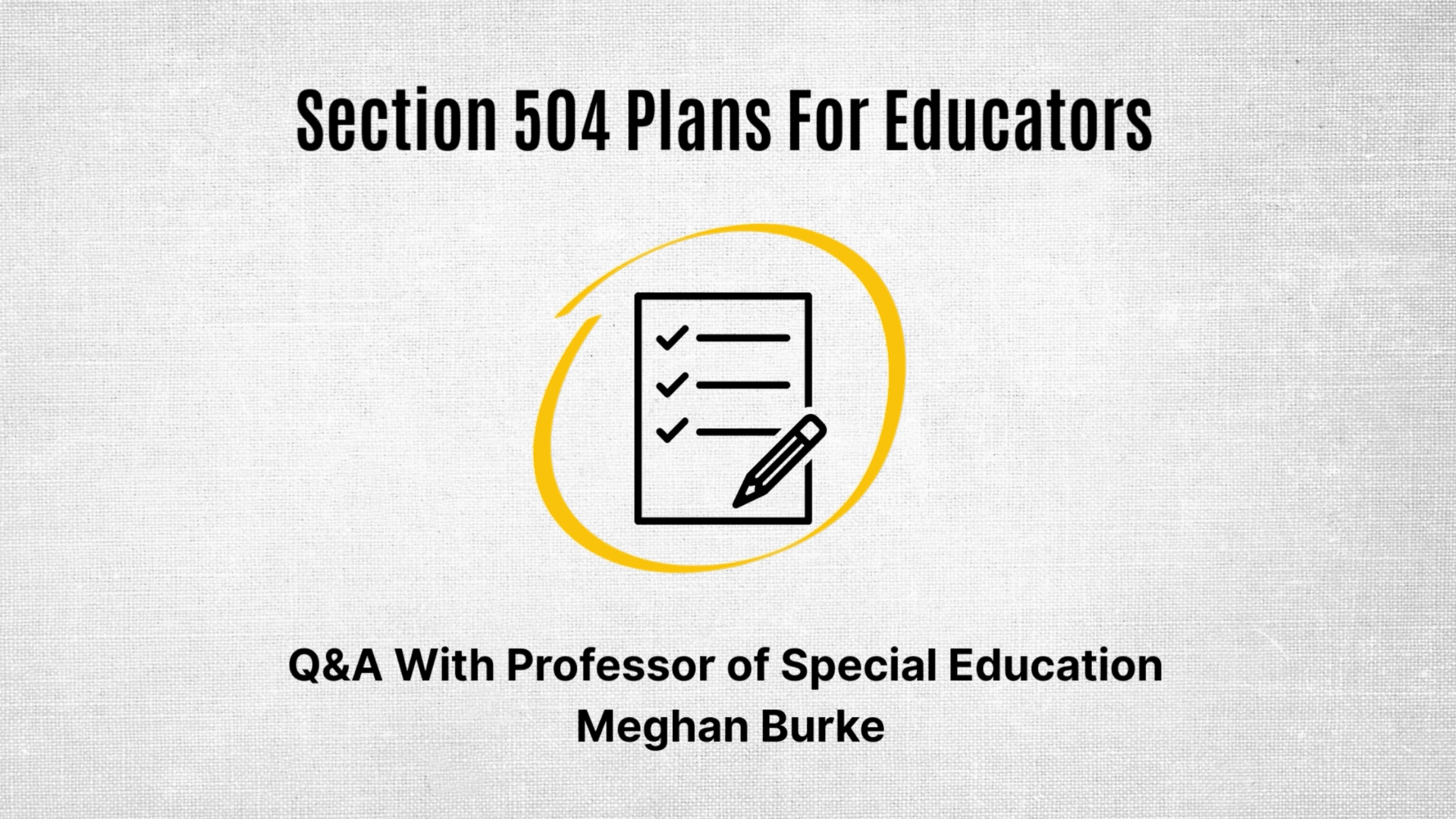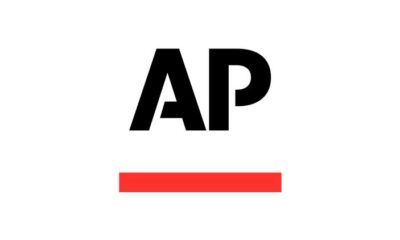Education
Vanderbilt Expert Explains Section 504 Plans for Educators

Educators seeking to better understand Section 504 plans can turn to insights from Meghan Burke, a prominent researcher at Vanderbilt Peabody College. These plans are designed to support over 1.3 million students with disabilities in the United States, offering vital accommodations that differ significantly from Individualized Education Plans (IEPs).
In a recent discussion, Burke addressed key questions that educators may encounter regarding Section 504. She explained the qualifications for students, the process for securing support for children in need, and provided examples of effective accommodations. This information is crucial as educators strive to ensure an inclusive learning environment for all students.
Understanding Section 504 Plans
Burke emphasized that Section 504 plans are essential for supporting students with disabilities, allowing them equitable access to education. Unlike IEPs, which are governed by the Individuals with Disabilities Education Act (IDEA), Section 504 plans fall under the Rehabilitation Act of 1973. This distinction is vital as it informs how services are delivered and what types of students qualify for support.
To qualify for a Section 504 plan, a student must demonstrate that they have a physical or mental impairment that substantially limits one or more major life activities. This broad definition allows a diverse range of students to receive necessary accommodations, ensuring they can fully participate in their educational experiences.
Burke encourages educators to familiarize themselves with the various accommodations available under Section 504. These may include modifications in testing conditions, classroom seating arrangements, or access to assistive technology. Such adjustments can significantly enhance a student’s ability to succeed academically.
Resources for Educators and Caregivers
For those looking to deepen their understanding of Section 504 plans, Burke recommends exploring resources from a Parent Training and Information Center. These centers provide valuable information and support for parents and educators alike, helping to bridge gaps in understanding and implementation of Section 504.
Additionally, Burke’s research paper, published in Intervention in School and Clinic, offers comprehensive answers to common questions regarding Section 504. This resource is particularly useful for educators who want to ensure they are meeting the needs of all students effectively.
Burke’s contributions to the field of special education are notable. As a professor at the top-ranked Department of Special Education, she has authored over 170 published articles and developed advocacy programs such as the Vanderbilt Kennedy Center Volunteer Advocacy Project. Her role as editor for leading journals in the field further highlights her commitment to advancing educational practices for students with disabilities.
In summary, Section 504 plans are a pivotal resource for educators aiming to support students with disabilities. With guidance from experts like Meghan Burke, educators can navigate the complexities of these plans to foster an inclusive educational environment. For further insights, the first video in this series addresses questions from caregivers about educational support plans and can be accessed for additional information.
-

 Technology5 months ago
Technology5 months agoDiscover the Top 10 Calorie Counting Apps of 2025
-

 Health3 months ago
Health3 months agoBella Hadid Shares Health Update After Treatment for Lyme Disease
-

 Health3 months ago
Health3 months agoErin Bates Shares Recovery Update Following Sepsis Complications
-

 Technology4 months ago
Technology4 months agoDiscover How to Reverse Image Search Using ChatGPT Effortlessly
-

 Technology1 month ago
Technology1 month agoDiscover 2025’s Top GPUs for Exceptional 4K Gaming Performance
-

 Technology3 months ago
Technology3 months agoElectric Moto Influencer Surronster Arrested in Tijuana
-

 Technology5 months ago
Technology5 months agoMeta Initiates $60B AI Data Center Expansion, Starting in Ohio
-

 Technology5 months ago
Technology5 months agoRecovering a Suspended TikTok Account: A Step-by-Step Guide
-

 Health5 months ago
Health5 months agoTested: Rab Firewall Mountain Jacket Survives Harsh Conditions
-

 Lifestyle5 months ago
Lifestyle5 months agoBelton Family Reunites After Daughter Survives Hill Country Floods
-

 Health3 months ago
Health3 months agoAnalysts Project Stronger Growth for Apple’s iPhone 17 Lineup
-

 Technology4 months ago
Technology4 months agoHarmonic Launches AI Chatbot App to Transform Mathematical Reasoning




















